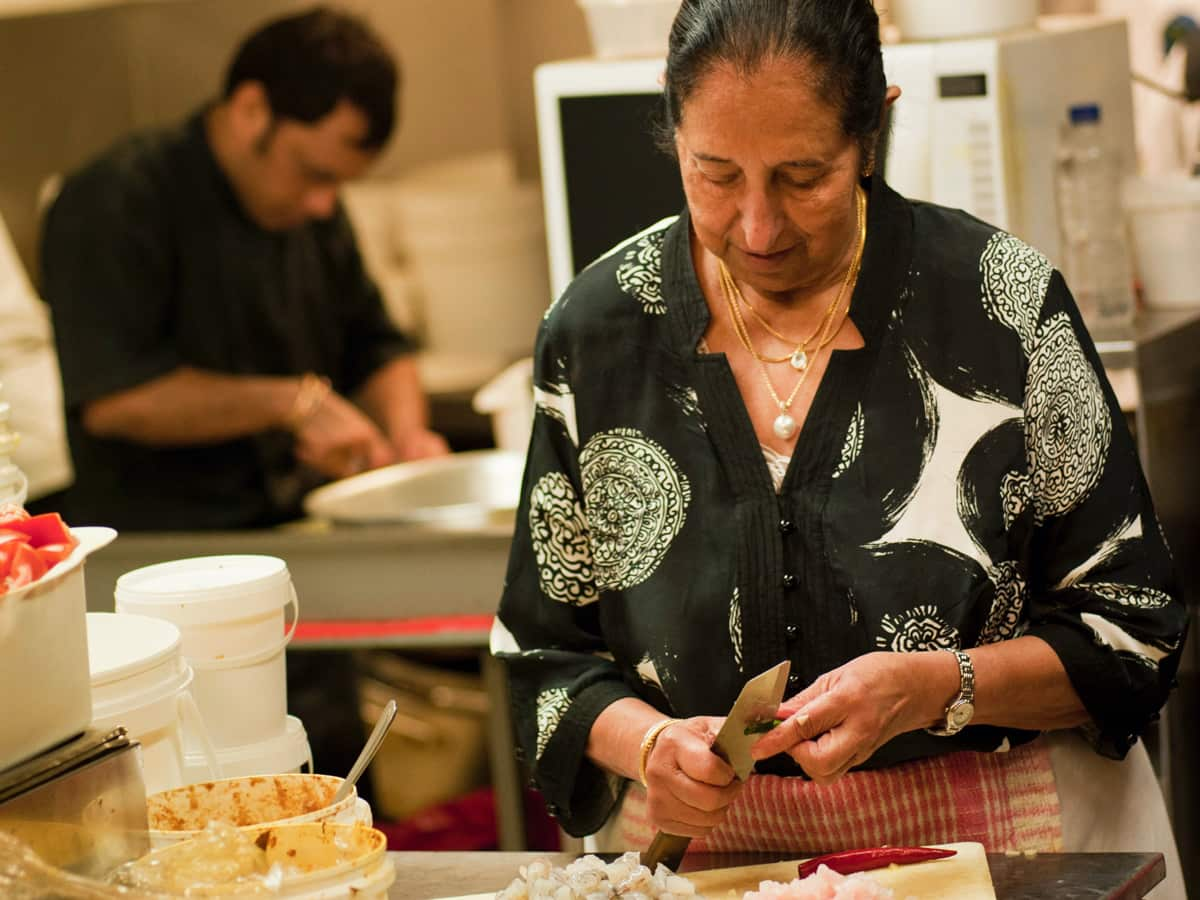When Amrik Singh’s family immigrated to Australia in the late '70s, a lack of Indian restaurants fed their ambitions like only his mum Anant’s home-style food could. “My mum was well known as a very good cook and for economic reasons, we needed to start a business,” he says. They never expected, however, that their dedication to authentic cuisine would evolve into Jasmin Indian restaurant, which has become an Adelaide food-lovers landmark since opening in 1980. “I have to pinch myself sometimes to think, 40 years later we’re still here. We feel so much a part of the fabric of South Australia. I couldn’t imagine anywhere else being home.” According to Anthea Hancocks, CEO of social cohesion research organisation, Scanlon Foundation, food is a core element in building a home for new Australians. “If you relocate to a new country, there are so many things that are different,” she tells SBS Food. “To find that you can actually cook something that tastes the same as what you would have done in your home country provides an enormous sense of reassurance that there are elements you can maintain about your own culture. But it also gives a sense of things that you can share with others to introduce them to who you are.”
According to Anthea Hancocks, CEO of social cohesion research organisation, Scanlon Foundation, food is a core element in building a home for new Australians. “If you relocate to a new country, there are so many things that are different,” she tells SBS Food. “To find that you can actually cook something that tastes the same as what you would have done in your home country provides an enormous sense of reassurance that there are elements you can maintain about your own culture. But it also gives a sense of things that you can share with others to introduce them to who you are.”

Anant Singh has been running much-loved Jasmin Indian restaurant for four decades. Source: Jasmin Indian
For Melbourne couple, Shohre Mansouri and Pouya Bagheri, collaborating with friends to throw Iranian dinner parties to raise money for children’s education in Iran, sustained their sense of identity in Australia. Mansouri tells SBS Food, “I thought it would be great for people to see how good Iranian food is, and how the culture that we have is amazing and different than any other cuisine.” Her husband, Bagheri, adds, “We grew up with a certain type of food, so we have a very strong connection with those foods. It’s a big part of our identity. When you offer part of your culture to others and make connections, you feel like you're being yourself.”
The Scanlon Foundation’s annual A Taste of Harmony events highlight the importance of food in how people experience cultural identity. Now in its twelfth year, A Taste of Harmony encourages diversity in the workplace by inviting people to bring food from their background (or offer food from a different culture) to share with colleagues. “Taking the opportunity to bring something from one's own cultural heritage, builds pride in the individual because they're sharing something that matters to them, but also, sharing it with people that they see every day has a great impact on how they build trust and a sense of welcome within the workplace,” says Hancocks.
When you offer part of your culture to others and make connections, you feel like you're being yourself.
The overwhelming welcome Amrik Singh’s family received from the Adelaide community when opening Jasmin Indian gave them the space to maintain their cultural identity through Indian food and music. “We didn't need to change anything. We could be who we were. And we were fully accepted into society,” he says. This acceptance was also experienced by Mansouri and Bagheri, in Melbourne, as their regular dinner parties introduced Iranian culture to new friends. “It helped me to gain some confidence, as someone who has an identity of their own,” says Mansouri.
The 20 per cent yearly growth of A Taste of Harmony events in Australian workplaces confirms the positive impact of sharing cultural identity through food. “Food is something that everybody enjoys,” Hancocks says. “The feedback that we get [from participants] is somewhere like 95 per cent of people believe that they know more about their colleagues and better understand the value of cultural diversity in the workplace.” It seems sharing food provides an opportunity to cross the borders of cultural differences and help new Australians feel at home.
A Taste of Harmony runs from 15–21 March.
Share
SBS Food is a 24/7 foodie channel for all Australians, with a focus on simple, authentic and everyday food inspiration from cultures everywhere. NSW stream only. Read more about SBS Food
Have a story or comment? Contact Us







